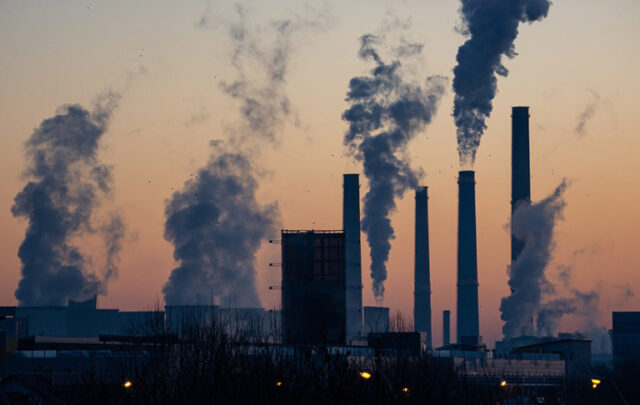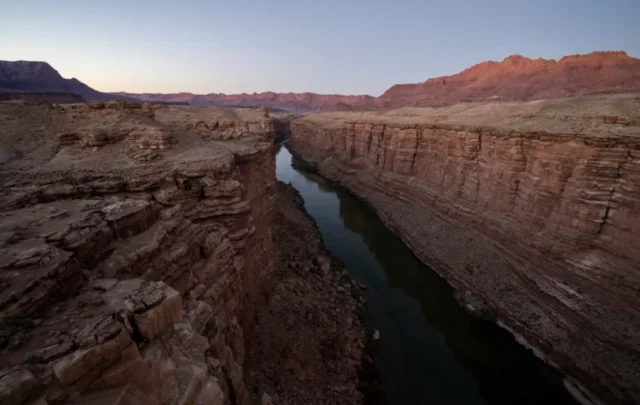THE international price of crude oil has hit an all-time high of $46 to the barrel. The reasons for the increase are many and not too well understood. The situation has been particularly aggravated by the political tension in West Asia, especially the disturbed situation in Iraq with militants threatening the security of both Iraq’s and Saudi oil fields.
Mainly, the increase reflects the continuing pressure of high demand encountering lower potential growth of supplies. Meanwhile, the growth in demand from the oil guzzlers of the US, China, Europe and, lately, India, has contributed to an immediate crisis of high demand pressing on diminishing reserves and production.
A report in The Hindu of August 18, 2004 highlights the grave risks posed by high crude oil prices. In April-July 2004, oil imports in value terms went up 62 per cent over the corresponding figures for the previous year. They stood at $9.9 billion for the period reflecting the high prices.
Another recent newspaper article also highlights the crippling burden of crude oil imports into India, which amounts to Rs 100,000 crore a year in rupee terms. It is doubtful whether all our highly-touted software and other exports can continue to support this almost unbearable burden.
I was particularly impressed by the gravity of the crisis when I listened to a BBC-sponsored discussion on Dateline London a few days back. Representatives from Europe, particularly Germany and Portugal, who discussed the issue, stressed how all countries were becoming deeply aware of the impending crisis.
The tendency of petro-products users in all countries is to expect the government to step in by adjusting taxes downward to absorb a bulk of the increase in crude prices. This tendency to pass the buck to the government seems universal. There is, however, a limit to the fisc’s capacity to absorb high increases in crude prices. Beyond a point, such fiscal adjustment becomes counter-productive as the burden only gets transferred in the form of other taxes to the general tax-paying public.
What is to be explored is whether the current adverse trend will continue and for how long and to what extent. Of particular interest is in this context is a piece by Adam Porter referring to the “Peak Oil” Conference held recently in Berlin.
The Conference heard a blunt message from ASPO — the Association for the Study of Peak Oil. The group includes people like Mr Ali Bakhtiari, Head of Strategic Planning, National Oil Company of Iran, Dr Colin Campbell, former Executive Vice-President of TotalFinaElf, and Mr Matt Simmons, an Energy Investment Banker and Adviser to the Bush-Cheney Energy Plan.
The group feels that the current increase in crude oil prices is only a foretaste of worse to come. Mr Simmons is quoted as saying, “The figure I would use is $182 a barrel”. This price, which the group thinks is realistic, is more than four times the current high level. Mr Bakhtiari adds that there will be no linear change. There will only be a sudden explosive change — an undesirable outcome!
The ASPO’s grim predictions flow from the calculations of Dr Campbell and other experts. These are based on the fact that many official oil data about reserves are either deeply flawed or, at worst, downright lies. Scandals, like the 23 per cent lost reserves at Royal Dutch Shell — an accounting fiddle to boost share value — have raised interest in Campbell’s work.
False estimates of reserves threaten the very security of energy supply just as do bombs under pipelines. Dr Campbell further points out that existing great oil fields are increasingly old and inefficient.
In his report, Mr Adam Porter states that the Chief Economist of the International Energy Agency, Mr Fatih Birol, who attended the Conference, admitted in private that the fears were real. For the time being, there is no spare capacity, while we expect demand to increase by the fourth quarter of the year by three million barrels a day.
If Saudi Arabia does not increase supply by 3 million barrels a day by the end of the year, we will face trouble. Mr Birol admitted that increase of crude production by this order would mean a 30 per cent leap in production. According to this view, the order of increase was absolutely out of question.
All this prediction of “doom” on the global oil front has important implications for India’s future, in terms of energy planning. Against these grim predictions, we seem to be in a phase of complacency as we have been able to apparently stem the fires of popular discontent over the fuel price rise by temporarily depressing excise and Customs duties. Wait till it really hurts — when the price of crude rises to $182. For the immediate future, a further rise to $60-70 seems very likely.
While it is true that a rise in crude prices means an increase in the GDPs of West Asian countries and, hence, increases in NRI remittances, it also implies a “tax” on the GDP of both developed and developing countries. It contributes to a reduction in global GDP growth and will affect our export earnings. Above all, it is doubtful whether our BoP will be able to sustain the direct impact of the increased crude import bill that such a rise in prices will involve. It is already clear that our trade balance is wilting under the pressure of fuel imports. We cannot expect our BoP, which depends for its balance essentially on capital receipts, to sustain the burden of such sharp increases in crude prices.
An optimal and feasible answer to the crude price challenge is not immediately obvious. Suggestions have been put forward that a shift to bio-fuels such as sugarcane-based gasoline substitutes may help. But the economics of such substitution is debatable, considering the high water use implicit in sugarcane production as well as its heavy dependence on fertilisers.
There is also talk of shift to jatropha cultivation and examination of possibilities of diesel substitutes being extracted from jatropha. This is a worthwhile initiative, but its feasibility remains to be tested in the field.
The time has come for the country to commit itself to developing an alternative fuel, like hydrogen. China is reportedly well-advanced on the mission to introduce hydrogen as a fuel for powering its growing car population. This requires a considerable amount of planning and investment. Even if the technology problem in hydrogen-powered vehicles is fully sorted out, there is bound to be a difficult phase involving development of production and distribution.
Further, the difficulties still experienced in hydrogen-based vehicles need to be tackled on a practical basis with a view to emphasising user-friendliness, as now seen in petrol and diesel automobiles.
Whatever be the difficulties of alternatives, they need to be explored. The seriousness of the current crude price crisis indicates that it is time to commence a serious study and implementation of alternatives. We should set up a mission to explore, and if need be, introduce such alternative fuels as “hydrogen”.
The seriousness with which high prices are being forecast for crude may very well turn out to be a blessing in disguise. These prices will justify the new investments in alternative fuels, which may have been judged to be non-viable options at lower crude prices.
We should expect the Planning Commission under Dr Montek Singh Ahluwalia’s imaginative leadership to initiate an action-oriented study on various policy alternative solutions to the energy crisis the country will face if the crude price rises sky-high, as seems likely.
Alternative sources of energy — modes of production and transportation — should be explored holistically to prevent our economy being a sitting duck before the new weapons of mass destruction — the threat posed by the stratospheric price increases in crude oil.
The planners should also study the increased use of mass transport, expansion of hydel power, and resort to enhanced use of nuclear power as well as conservation of energy. Suffice it to say that the problem requires intensive study and application of mind by experts in technology and economics. The energy security of the country and its economic growth depend vitally on early answers to the question.
Energy security calls for calm and considered responses and not knee-jerk reactions. While fiscal adjustments can offer temporary relief, we have to seek long-term remedies to the longer-term problem. The options are complex and involve lifestyle choices for many sections of society.
It behooves the planners to start thinking seriously about how to meet the threats to energy security posed by the emerging problem of crude shortage and high prices. We should not be dumb victims at the receiving end of volatile and skyrocketing crude oil prices, exacerbated by the chaotic gyrations of global geo-politics.





